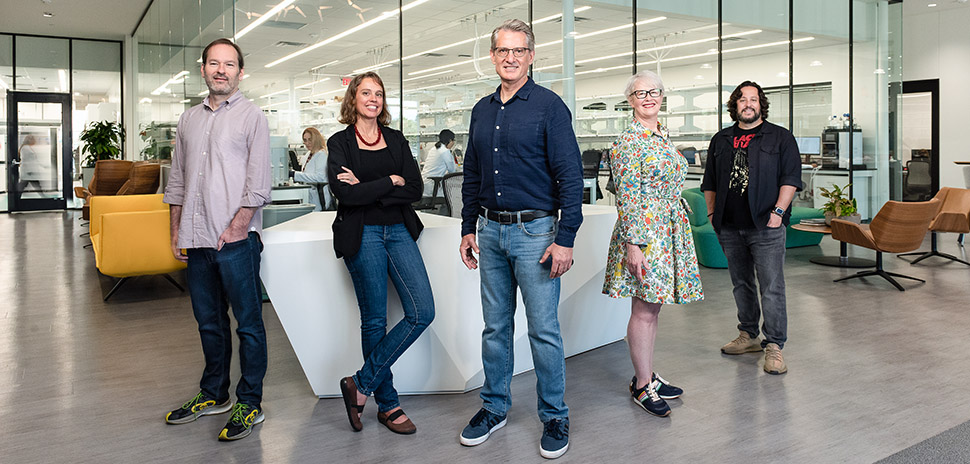At iC3 2023, Form Bio, recognized as one of the eight Rising Stars, unveiled its debut during the previous year’s summit. [Photo: John Davidson/Form Bio]
Form Bio, a computational life sciences solutions provider headquartered in Dallas, disclosed the integration of Google Cloud’s cutting-edge AI models for healthcare and life sciences exploration as user-friendly workflows accessible through its bioinformatics platform.
As a distinguished Google Cloud Premier Partner, Form Bio facilitates the adoption of Google Cloud’s Multiomics Suite, which was introduced the previous year. This initiative was previously featured in Dallas Innovates to support other entities in its implementation.
Dai Vu, the managing director of marketplace & ISV GTM programs at Google Cloud, emphasized, “By introducing Form Bio to Google Cloud Marketplace, life science professionals can efficiently deploy and oversee omics models on Google Cloud’s secure global infrastructure. This integration enables Form Bio to effectively scale and assist clients in their digital transformation endeavors.”
Streamlining Access Through User-Friendly Interface
Form Bio has streamlined access to Google Cloud’s Vertex AI-based omics models through a straightforward point-and-click approach.
Omics, branches of scientific study ending in -omics such as genomics, proteomics, metabolomics, metagenomics, phenomics, and transcriptomics, play a vital role in biological research.
Form Bio’s cloud-based bioinformatics platform, described as “comprehensive and user-friendly,” is now accessible on Google Cloud Marketplace, empowering life science professionals to leverage its AI solutions on Google Cloud’s reliable global infrastructure.
Breaking Down Barriers in Scientific Operations
Form Bio highlighted that Google Cloud’s advanced AI and machine learning models offer life sciences researchers diverse capabilities for analyzing and processing extensive biological datasets through mechanisms like deep learning and neural networks.
While these models were previously executable through code repositories and containerization solutions, Form Bio now enables their seamless execution with just a few clicks on its informatics platform, bridging the gap between laboratory operations and Google Cloud’s sophisticated AI/ML innovations.
Introduction of Advanced AI-Based Omics Models
Form Bio has introduced various AI-based omics models, including:
- DeepVariant: A variant caller based on deep learning techniques that processes aligned reads to generate pileup image tensors, classifies each tensor using a convolutional neural network, and presents results in standard VCF or gVCF files.
- DeepSomatic: An extension of DeepVariant for identifying somatic variants from tumor and normal data.
- DeepTrio: Specifically designed for variant calling in trios or duos, considering genetic inheritance for accurate variant identification.
- DeepVariant for RNA-seq: Tailored to address the challenges of RNA-seq data for precise variant calling.
- DeepConsensus: Utilizes gap-aware transformers for sequence correction in PacBio CCS data.
- DeepPolisher: A sequencing correction method to identify errors in genome assemblies.
- AlphaFold Protein Structure Prediction: A state-of-the-art system for protein structure prediction developed by Google DeepMind.
These models empower scientists to harness vast biological data efficiently, accelerating the computational aspects of their research endeavors.
